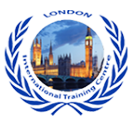UNAIDS & WORLD BANK ACTION FOR EXTREME POVERTY
UNAIDS and the World Bank Group endorse action points to address extreme poverty and AIDS
GENEVA/WASHINGTON, 15 January 2014—During a high-level meeting and discussions in Washington last week, UNAIDS and the World Bank Group endorsed four areas of action to accelerate efforts that address the interrelated challenges of AIDS, inequality and extreme poverty.
UNAIDS and the World Bank Group have committed to work closely with UNDP and other international partners, to address the social and structural drivers of the HIV epidemic that put people at greater risk of HIV and deny them access to services. These social and structural drivers include gender inequality, stigma and discrimination, lack of access to education and unstable livelihoods. UNAIDS and the World Bank Group will advocate for:
- Aligning health and development efforts around country-led time-bound goals towards ending extreme poverty and AIDS, with special attention to the inclusion of the poorest and most marginalized populations. Areas of focus will include: supporting countries to adopt progressive legal systems that remove discriminatory laws, especially among populations most vulnerable to HIV infection; increasing access to income, adequate housing and safe working conditions; and accelerating reforms towards universal health coverage and universal access to HIV services and commodities.
- Urging the post-2015 development agenda to include targets towards ending AIDS alongside the goal of universal health coverage, so that no one falls into poverty or is kept in poverty due to payment for AIDS treatment or health care.
- Promoting national and global monitoring and implementation research. Actions will include: working closely with global partners and countries to innovate and monitor service delivery, including for HIV, especially to the poorest and the most marginalized; and intensify implementation research to capture and codify innovative approaches to address the linkages between efforts towards ending extreme poverty and ending AIDS. As part of this effort, the World Bank Group will launch a major new trial to better understand how social protection systems reduce HIV infection, particularly among young women in the highest burden hyper-endemic countries.
- Convening two high-level meetings in 2014 with national policy leaders and experts on ending AIDS and extreme poverty. The first meeting will be convened in Southern Africa to share current research and discuss how it can be translated into practice. The second meeting will be held during the International AIDS Conference in July 2014 in Melbourne.
Despite unprecedented progress over the past decade in the global response to HIV, economic inequality, social marginalization and other structural factors have continued to fuel the HIV epidemic. The epidemic continues to undermine efforts to reduce poverty and marginalization. HIV deepens poverty, exacerbates social and economic inequalities, diminishes opportunities for economic and social advancement and causes profound human hardship.
“Ending the AIDS epidemic and extreme poverty is within our power,” said Michel Sidibé, Executive Director, UNAIDS. “Our combined efforts will contribute to a global movement working to ensure that every person can realize their right to quality healthcare and live free from poverty and discrimination.”
“Just as money alone is insufficient to end poverty, science is powerless to defeat AIDS unless we tackle the underlying social and structural factors,” said Jim Yong Kim, President of the World Bank Group. “To end both AIDS and poverty, we need sustained political will, social activism, and an unwavering commitment to equity and social justice.”
“Stigma, discrimination and marginalization stand in the way of fully realizing the promise of HIV prevention and treatment technologies,” said Helen Clark, UNDP Administrator. “We know that where laws and policies enable people affected by HIV to participate with dignity in daily life without fearing discrimination, they are more likely to seek prevention, care and support services.”
Improving health services and outcomes is critical to ending extreme poverty and boosting shared prosperity. The recent Lancet Commission on Investing in Health estimated that up to 24% of economic growth in low- and middle-income countries was due to better health outcomes. The payoffs are immense: the Commission concluded that investing in health yields a 9 to 20-fold return on investment.
Investing in health also means investing in equity. Essential elements of a human rights-based response to HIV include: enabling laws, policies and initiatives that protect and promote access to effective health and social services, including access to secure housing, adequate nutrition and other essential services. Such measures can help protect people affected by HIV from stigma, discrimination, violence and economic vulnerability. HIV-sensitive social protection is already a key component of the UNAIDS vision of zero new HIV infections, zero discrimination and zero AIDS-related deaths.
“Pills on a shelf do not save lives,” said Sveta Moroz of the Union of Women of Ukraine Affected by HIV. “To end the AIDS epidemic for everyone will require a people-centered approach driven by the community and based on social justice. It demands an approach that ensures basic human rights to safe housing, access to healthcare, food security and economic opportunity. These are rights that actively remove barriers to real people’s engagement in effective HIV prevention and care.”
UNAIDS and the World Bank Group will work to ensure that these efforts feature prominently in the post-2015 global development agenda, and are integral elements in ending AIDS, achieving universal health coverage, ending extreme poverty and inequality and building shared prosperity.
UNAIDS
The Joint United Nations Programme on HIV/AIDS (UNAIDS) leads and inspires the world to achieve its shared vision of zero new HIV infections, zero discrimination and zero AIDS-related deaths. UNAIDS unites the efforts of 11 UN organizations—UNHCR, UNICEF, WFP, UNDP, UNFPA, UNODC, UN Women, ILO, UNESCO, WHO and the World Bank—and works closely with global and national partners to maximize results for the AIDS response. Learn more at unaids.org and connect with us onFacebook and Twitter.
World Bank Group
The World Bank Group is a vital source of financial and technical assistance to developing countries around the world, with the goals of ending extreme poverty and boosting shared prosperity. Improving health is integral to achieving these goals. The World Bank Group provides financing, state-of-the-art analysis, and policy advice to help countries expand access to quality, affordable healthcare; protect people from falling into poverty or worsening poverty due to illness; and promote investments in all sectors that form the foundation of healthy societies.
NEWS

London International Training
Centre
Claim House 27 Aintree
Road Perivale London,
Middlesex UB6 7LA
United Kingdom
Tel: +44(0) 20 8998 8866
Fax: +44 (0)20 8998 8869
E-mail: info@londonitc.org.uk
Website: www.londonitc.org.uk





